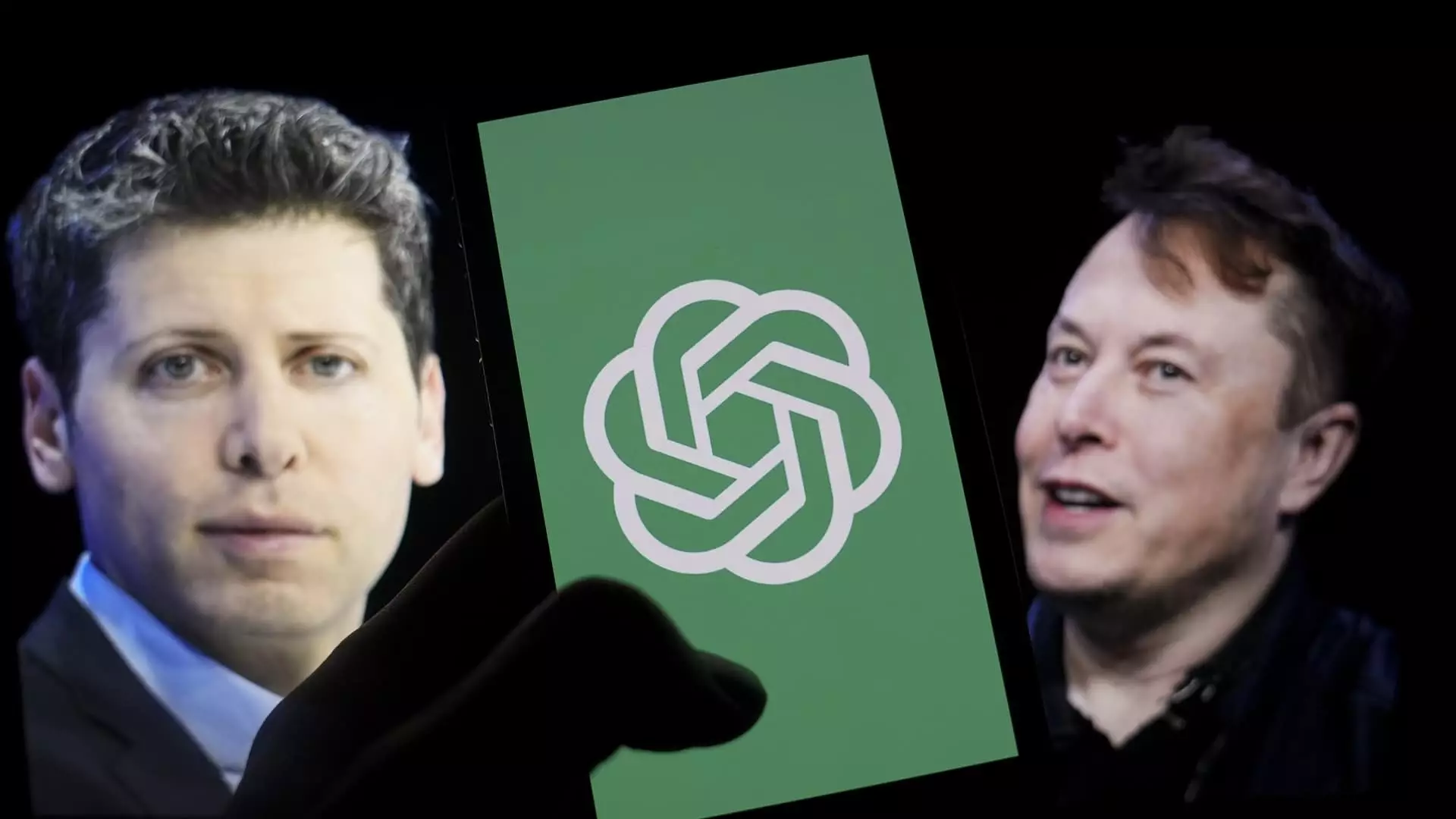The rapidly evolving landscape of artificial intelligence has ignited fierce competition and, consequently, legal disputes amongst its major players. At the intersection of this turmoil, Elon Musk has mounted a legal challenge against OpenAI, seeking to obstruct its transition into a fully profit-driven entity. This conflict not only reveals the complexities of innovation in AI but also raises critical questions about ethics, competition, and influence in a field that is defining the future.
Elon Musk, a tech mogul renowned for his ambitious ventures, has increasingly focused his efforts on artificial intelligence through his own startup, xAI. As part of this foray, Musk, along with former OpenAI board member Shivon Zilis, has initiated legal action against OpenAI. Their attorneys filed a motion for a preliminary injunction on the grounds that OpenAI’s restructuring plans pose a significant threat to competitors by limiting access to essential investment capital. This legal assault on OpenAI represents the culmination of escalating tensions between Musk and the organization’s current leadership, including CEO Sam Altman.
Originally, Musk’s confrontation with OpenAI began in March 2024 but transformed into a more severe legal battle after he withdrew his initial lawsuit in state court and opted for federal court instead. In his current lawsuit, spearheaded by attorney Marc Toberoff, Musk’s legal team alleges violations of the Racketeer Influenced and Corrupt Organizations Act (RICO), alongside claims that OpenAI, in collaboration with Microsoft, has breached antitrust laws. These accusations underscore Musk’s assertion that OpenAI operates under a coercive investor agreement that stifles competition.
The Allegations Against OpenAI
Musk’s legal representatives claim that OpenAI’s request for investors to abstain from backing rival firms quite blatantly disrupts the competitive fabric of the AI marketplace. They claim that this practice amounts to a “group boycott,” making it increasingly difficult for startups like xAI to secure the funding necessary for survival and growth. Musk’s lawyers have characterized OpenAI’s transformation into a fully for-profit public benefit corporation as a maneuver that serves to enrich its existing stakeholders—particularly in light of its substantial financial backing from corporations like Microsoft.
Adding to the allegations are claims of ethically dubious practices, suggesting that OpenAI benefitted from the prior exchange of sensitive market information with Microsoft. This arrangement raises broader questions about the integrity of corporate partnerships in an industry that prides itself on innovation and fairness. The legal team argued that OpenAI should be precluded from profiting from covert arrangements formed with Microsoft, which could harm smaller competitors’ access to crucial financial resources.
In stark contrast to Musk’s aggressive legal posture, OpenAI has firmly rejected the accusations, labeling them as baseless and devoid of merit. An OpenAI spokesperson has branded Musk’s legal maneuvers as repetitive and unsubstantiated, a sentiment expressed by many industry observers who view Musk’s actions as cynical attempts to undermine a leading competitor rather than genuinely competitive practices. The response emphasizes that OpenAI’s trajectory, especially after its 2015 inception, reflects a strategic adaptation to market demands, and that its capped-profit model was designed to secure investment while maintaining a commitment to ethical AI development.
OpenAI’s ambitions have rapidly materialized into tangible success, with products like ChatGPT capturing significant market attention and driving high-profile corporate interest in AI. This success has been punctuated by considerable investments, including nearly $14 billion from Microsoft, which demonstrates a vote of confidence from established tech giants in OpenAI’s foundational goals. However, the narrative becomes complex as OpenAI grapples with balancing profitability with its innovative ethos amidst growing competition.
The Landscape of AI and Future Implications
As the generative AI market is projected to surpass $1 trillion in revenue within the next decade, the stakes for companies involved are exorbitantly high. Musk’s ongoing legal dispute with OpenAI delineates broader implications for the entire AI sector—specifically, the method by which competitive dynamics unfold and how corporations navigate partnerships and procure capital. The involvement of regulatory bodies, such as the Federal Trade Commission (FTC), adds another layer of scrutiny, indicating that the government may take a more active role in regulating corporate practices within this burgeoning industry.
In this fast-paced realm, where ethical standards and competitive practices are continuously evolving, the legal precedent set by Musk’s challenge against OpenAI could establish crucial benchmarks. Musk’s concerns reflect a tension inherent within technological progression: the need for innovation can clash with principles of fairness and accessibility in competition. How this saga unfolds may very well determine not just the future trajectories of Musk’s entrepreneurial ambitions but also the shape of the AI marketplace as a whole.

Leave a Reply